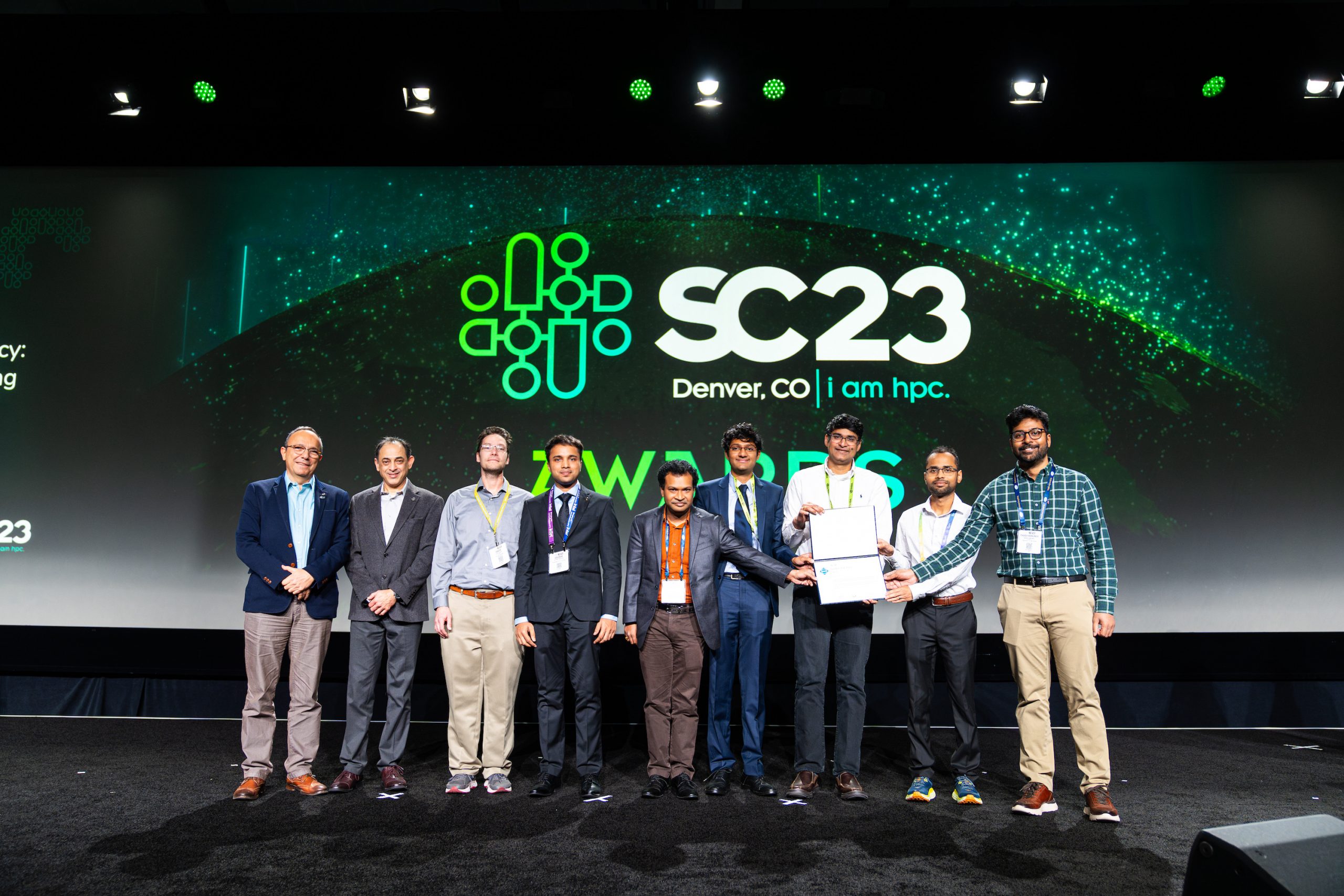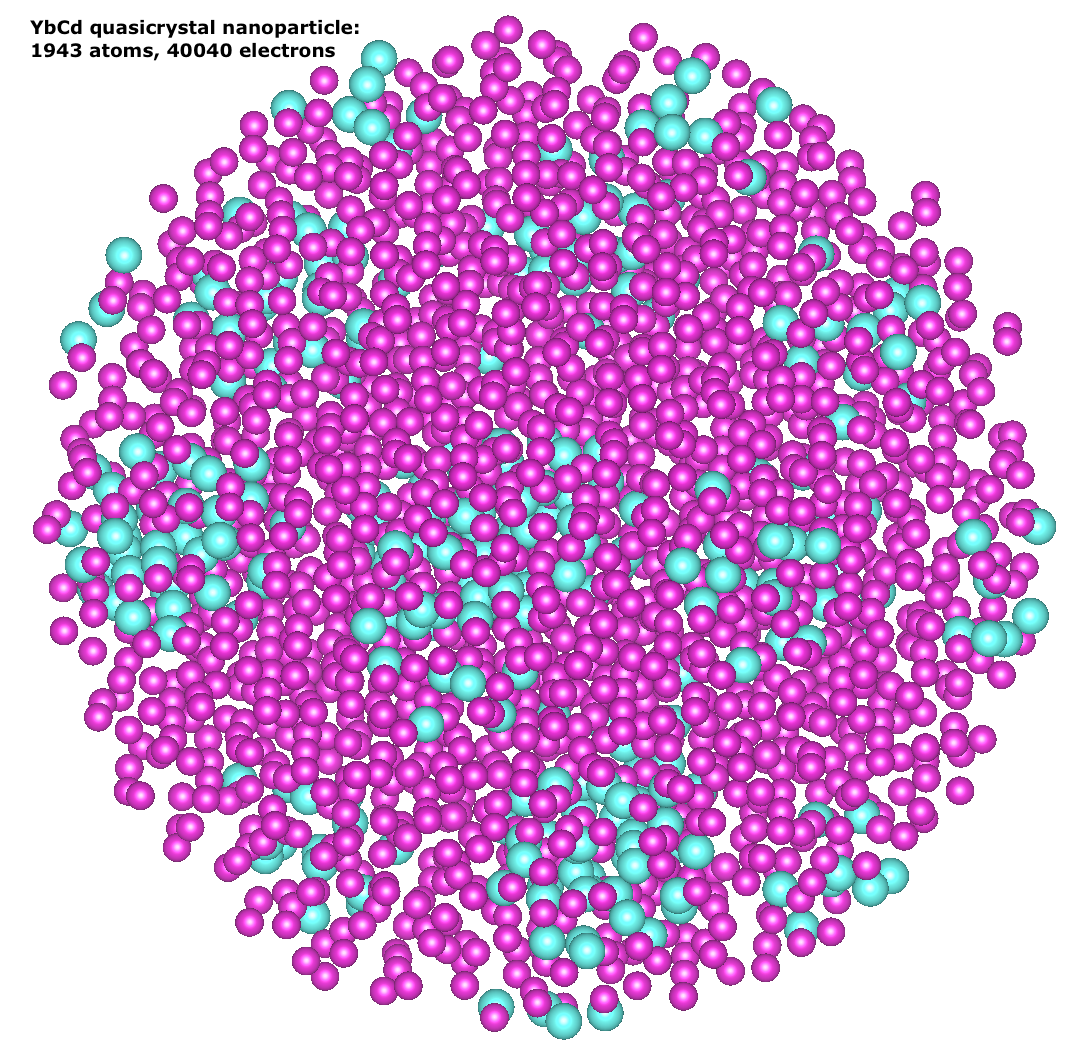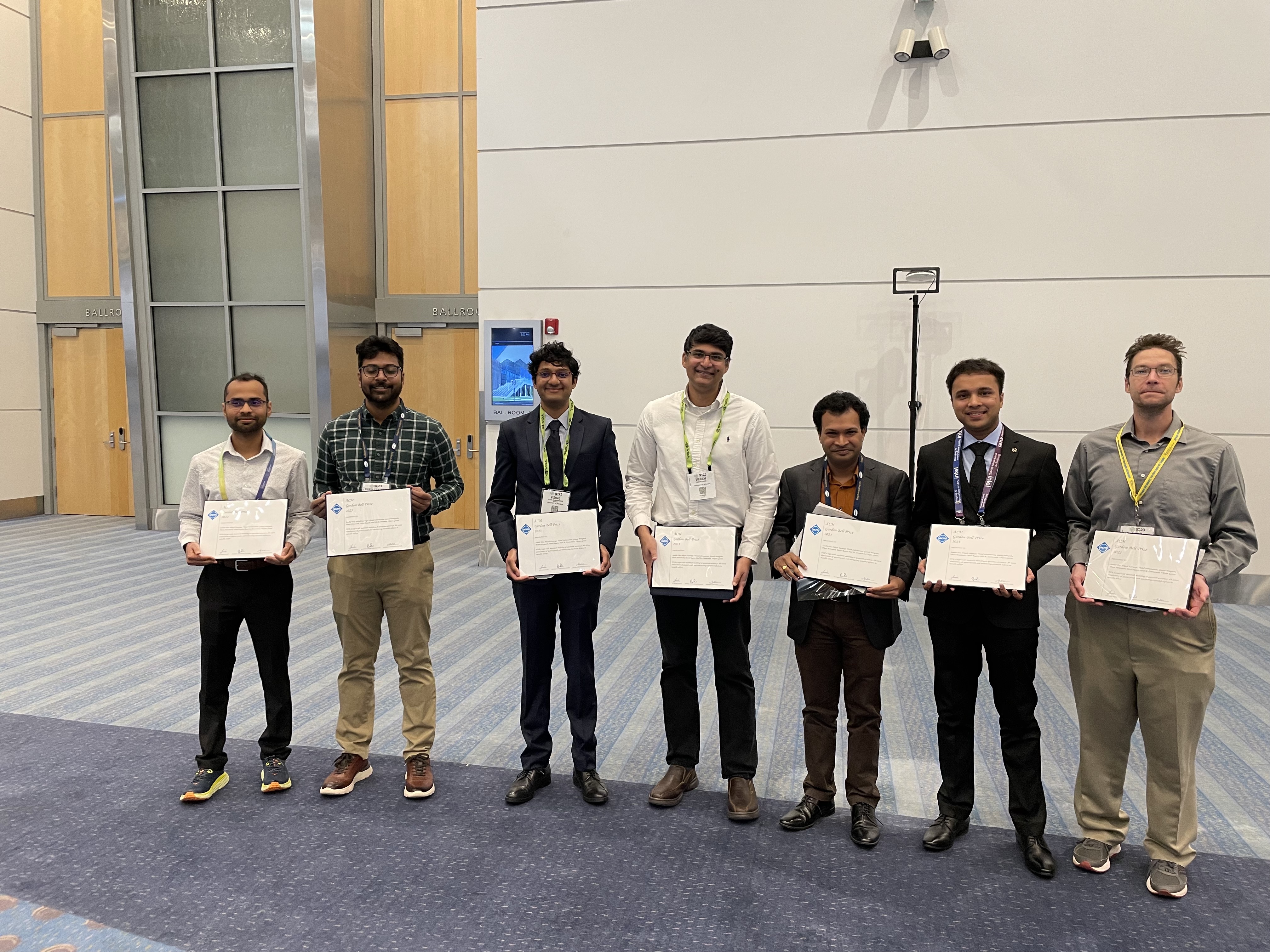The prestigious Gordon Bell Prize is awarded each year internationally by the Association for
Computing Machinery (ACM), to recognise outstanding achievement in high-performance
computing (HPC). An eight-member team from the University of Michigan, Indian Institute of
Science (IISc) and Oak Ridge National Lab was named as the winner of the 2023 ACM
Gordon Bell Prize for their project: “Large-Scale Materials Modeling at Quantum
Accuracy: Ab Initio Simulations of Quasicrystals and Interacting Extended Defects in Metallic
Alloys.”

The team demonstrated a paradigm shift in density functional theory (DFT) calculations that
provided an accuracy commensurate with Quantum Many-Body methods in ground-state
energies, while attaining an unprecedented performance of 659.7 PFLOPS (43.1% peak FP64
performance) on a material system involving 619,124 electrons using 8,000 GPU nodes of
the Frontier supercomputer, the world’s first and fastest exascale supercomputer. The award
tracks the progress of parallel computing over time, with particular emphasis on rewarding
innovation in high-performance computing applications in science, engineering and largescale data analytics.

This achievement also marks the first time a research group from India has been a part of
this prestigious accolade. The IISc team led by Phani Motamarri, Assistant Professor in the
Department of Computational and Data Sciences (CDS), and including PhD student Gourab
Panigrahi, was instrumental in the development of scalable finite-element (FE) based
methods for DFT calculations which include efficient eigensolver strategies combined with
HPC innovations in FE-specific dense linear algebra, mixed precision algorithms involving
asynchronous compute-communication.
The implications of the award-winning work can impact a diverse set of key scientific and
technological problems, including designing new catalytic materials for clean fuel
production, better materials for energy storage, devising materials and mechanisms for
carbon dioxide sequestration, and discovering novel qubit materials for quantum computers,
to name a few.

More details about the award:
https://awards.acm.org/binaries/content/assets/press-releases/2023/november/gordonbell-prize-2023.pdf
https://www.acm.org/media-center/2023/november/gordon-bell-prize-2023
Related paper:
https://dl.acm.org/doi/pdf/10.1145/3581784.3627037
More about the group’s current research activities:
https://sites.google.com/view/matrix-lab/research

